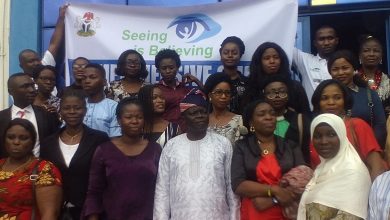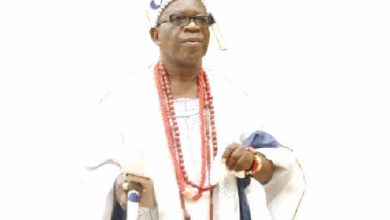
Archive
CRIMES COMMISSION NABS SOKOTO DIRECTOR, RECOVERS N6.7M ALLEGED STOLEN FUNDS

The press release stated that the arrest of the suspects followed a petition of 63 staff of Kebbe Local Government area of the State, alleging that the suspects misappropriated their Salaries for the month of April to September, 2019.
Penpushing further reports that, Uwujaren, also added that investigation revealed that the salaries of the 63 employees were stopped for some alleged malicious reasons, adding,. “however, the entire sum of N6,703,000.00 diverted has been recovered. The suspects will be charged to court as soon as investigation is concluded” he said.







